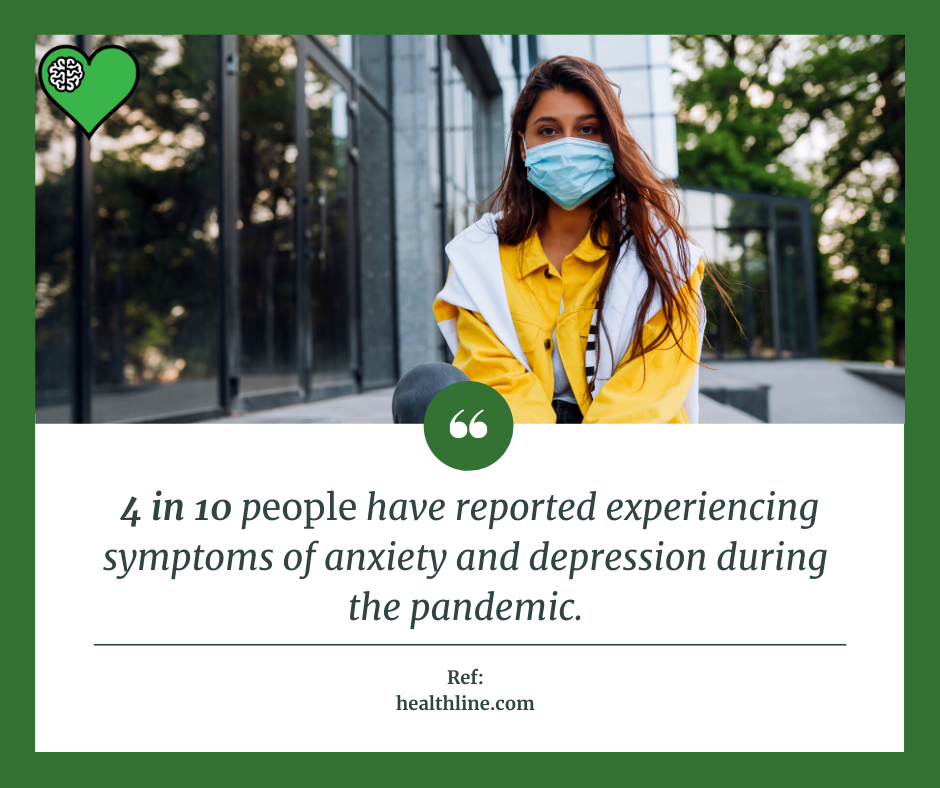- One in three adolescents (31.9 percent) will meet the criteria for an anxiety disorder by the age of 18.
- A new poll finds many teens show signs of anxiety and depression.
- The restrictions of the pandemic have been felt across the board. For teenagers, restrictions have meant months of virtual learning, more time isolated from friends, and the canceling of important social activities like sports, school performances, graduations, and proms.
The COVID-19 pandemic has meant living through multiple crises, including financial and disease-related ones, all at once. These crises have taken a toll on our mental and physical health.
According to the Kaiser Family Foundation, 4 in 10 adults in the United States have reported anxiety or depressive disorder symptoms during the pandemic.
But a poll from C.S. Mott Children’s Hospital shows that the mental health effects of the pandemic are more likely to have a significant impact on teenagers.
The restrictions of the pandemic have been felt across the board. For teenagers, restrictions have meant months of virtual learning, more time isolated from friends, and the canceling of important social activities like sports, school performances, graduations, and proms.
According to the C.S. Mott Children’s Hospital National Poll on Children’s Health at Michigan Medicine, a national poll shows that 46 percent of parents say their teen had shown signs of a new or worsening mental health condition since the beginning of the pandemic in March 2020.
“Teenage years are filled with physical, emotional, and cognitive changes. There are also hormonal shifts, more independence and responsibility, and peer challenges,” said Brittany LeMonda, PhD, senior neuropsychologist at Lenox Hill Hospital in New York.
“It is therefore not surprising that teens have been more susceptible to declines in psychological health over the last year.”
The poll looked at responses based on 977 parents of teenagers between 13 and 18 years old.
The results suggest that 1 in 3 girls and 1 in 5 teen boys have experienced new or worsening anxiety.
Going deeper, the results show that more parents of teen girls than parents of teen boys noted an increase in anxiety and worry (36 percent versus 19 percent) or depression/sadness (31 percent versus 18 percent).
The poll findings also tapped into methods that parents have used to improve their teens’ mental health. Experts recommend:
Relaxing family rules
Fifty-two percent of parents polled have tried relaxing family COVID-19 rules to allow for contact with friends, while 47 percent also said they have loosened social media restrictions. Eighty-one percent and 70 percent said both of these helped, respectively.
Talking with an expert
Talking with a mental health professional is always a strong option, with or without severe symptoms of depression or anxiety. One in four parents said they sought help for their teen, and 74 percent of those said that it had a positive effect.
Trying a web-based program
Twenty-five percent of parents encouraged their teen to try a web program or app to improve mental health. Apps are often less intimidating because they are efficient and portable.
Keeping communication open while still giving space
One in seven parents reported that their teen has withdrawn from the family. This can be concerning for a parent so they may try to overcompensate.
It can be more effective to demonstrate that teens are not alone by sharing one’s own insecurities and fears surrounding our changed world, as well as sharing personal coping strategies and asking questions to help create a safe space.
Encourage better sleep habits
One in four parents reported that their teens had had a negative change to their sleep patterns.
Creating a regular sleep schedule to fit with an online learning schedule, or creating responsibilities around the house and encouraging interaction with friends and family, can all contribute to a more healthy sleep routine.
“For parents who are able to and are around the house, it can be good to try to exercise with your kids most days,” said Shatkin. “This can be jogging, walking the dog, playing tennis, or whatever you can do safely outside.”
He also suggested building in activities or expanding on teens’ responsibilities to help give them a sense of purpose. This can be a family movie night, family cleaning, or having kids help plan meals or cook.
“Kids sometimes get a pass on these because parents are busy or end up doing it themselves. Now, there is an opportunity to enhance that,” he said.
Begin the dialogue early
The most important thing to remember is that mental illness can begin at the earliest of ages. Waiting until teens reach their 20s or 30s to deal with mental health can be detrimental.
“We have a huge opportunity to identify these issues early and also prevent a lot of them,” said Shatkin.
Fact check and Article from Health line

